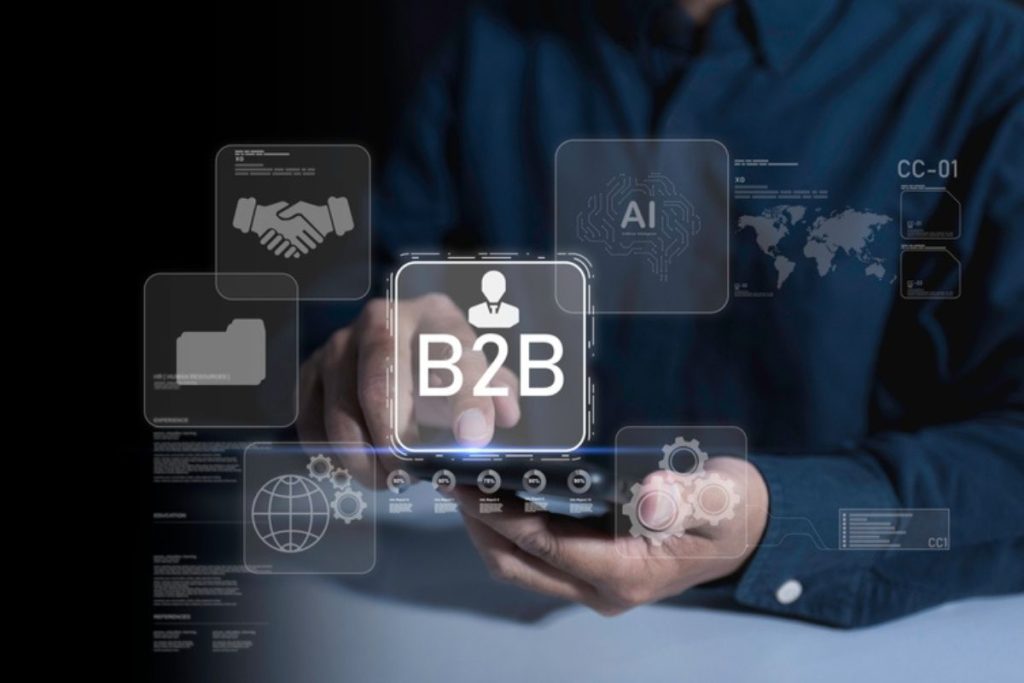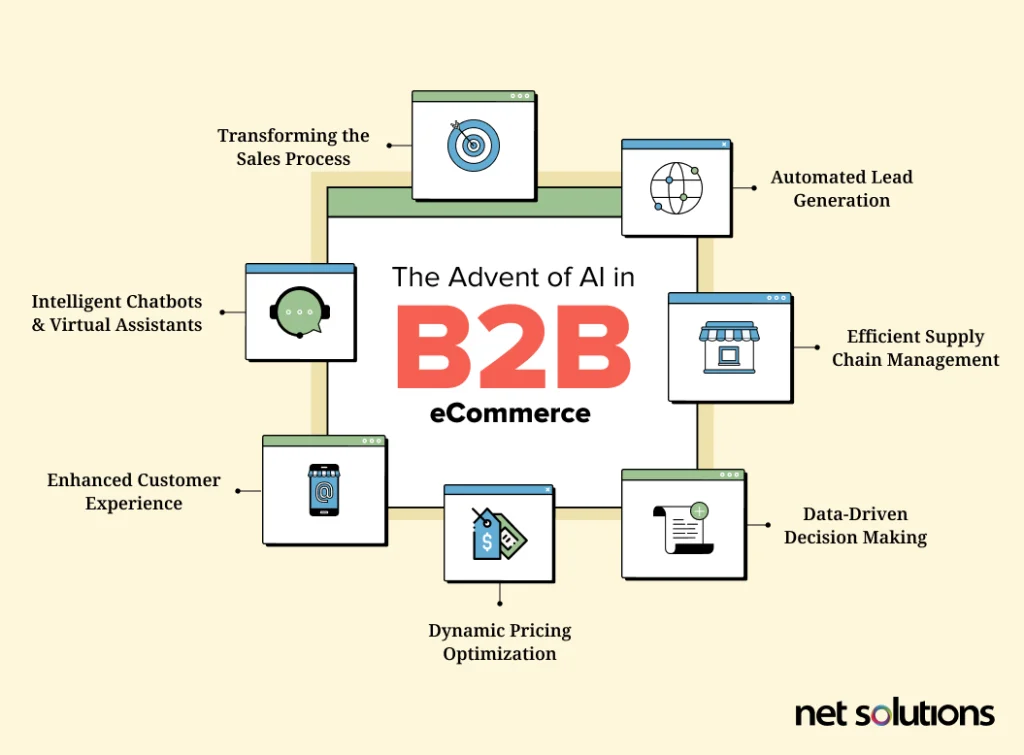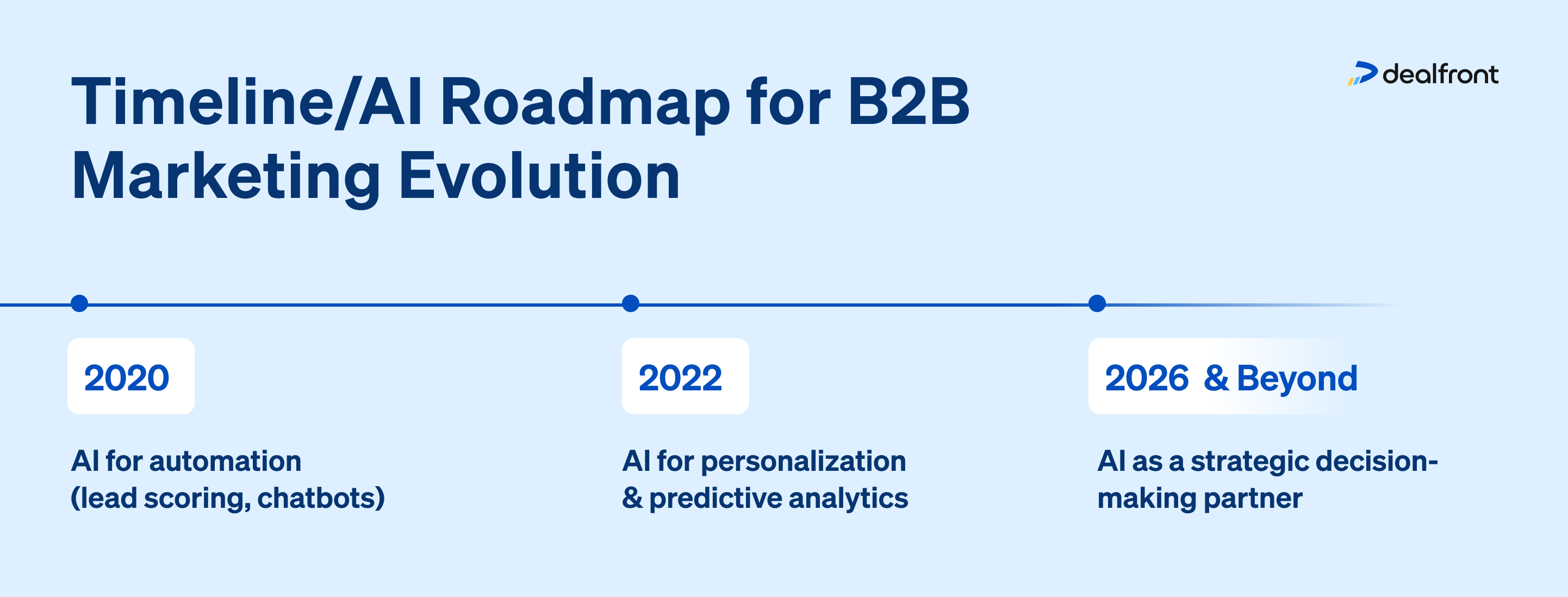Unlock Effectiveness and Growth With AI Automation for B2B Companies
AI automation is changing the landscape for B2B business. It improves procedures and decreases reliance on human treatment. This change allows organizations to make quicker, data-driven choices. As companies explore which processes to automate, they have to additionally take into consideration the right tools to implement. Difficulties continue to be in adopting AI modern technology. The effects of these modifications could shape the future of many firms in methods yet to be totally comprehended
Comprehending AI Automation in the B2B Context
As organizations progressively look for effectiveness, understanding AI automation in the B2B context becomes important. AI automation includes using innovative innovations to improve operations, decrease human intervention, and improve decision-making procedures. In the B2B landscape, this can show up in various types, such as automating customer care interactions, taking care of supply chain logistics, or optimizing advertising and marketing campaigns. Business can take advantage of AI to analyze substantial datasets rapidly, enabling them to determine trends and insights that inform strategic choices. Moreover, AI systems can incorporate seamlessly with existing technologies, offering a cohesive system for managing service functions. This understanding lays the groundwork for organizations to discover just how AI can change their procedures, improve efficiency, and eventually foster lasting development in an open market.
Secret Benefits of Applying AI Automation

Identifying Processes Suitable for Automation

Choosing the Right AI Devices for Your Service
When B2B companies take into consideration automating their processes, picking the right AI tools comes to be important for accomplishing preferred end results. Companies ought to start by evaluating their distinct needs and purposes, ensuring placement with organization goals (Minarik AI). Evaluating the scalability, flexibility, and combination abilities of potential tools is crucial, as these aspects establish long-lasting efficiency. Organizations must also consider user-friendliness and the degree of support given by vendors, as these elements can impact successful implementation. In addition, analyzing client reviews and situation studies can give insights into how specific AI services perform in real-world situations. By carefully selecting AI devices that fit their functional demands, B2B companies can boost efficiency and drive development while decreasing prospective disruptions
Overcoming Challenges in AI Adoption
B2B firms typically encounter substantial difficulties in adopting AI innovations, particularly issues connected to data high quality and resistance to transform administration. Poor data high quality can hinder the performance of AI systems, while worker hesitation to embrace brand-new processes can delay implementation efforts - Growth Systems For B2B. Dealing with these obstacles is essential for successful AI combination and optimizing its prospective benefits
Data Quality Issues
Guaranteeing high data top quality is essential for the successful adoption of AI modern technologies in business-to-business environments. Incorrect, insufficient, or out-of-date information can drastically hinder AI efforts, causing wrong understandings and bad decision-making. Business usually encounter challenges such as information silos, variances throughout various sources, and an absence of standardized data styles. To get rid of these concerns, organizations have to purchase data cleaning, combination, and governance processes. Carrying out robust information monitoring practices guarantees that the information fed right into AI systems is trustworthy and pertinent. Cultivating a culture of information top quality recognition among employees can boost data accuracy over time. By attending to data quality issues, B2B firms can launch the full capacity of AI automation, driving effectiveness and development.
Adjustment Management Resistance

Measuring the Effect of AI Automation
Gauging the influence of AI automation in B2B companies needs a clear understanding of key performance indicators (KPIs) that align with organization objectives. Effective information evaluation methods are necessary for analyzing the outcomes, while robust ROI assessment approaches help identify the monetary advantages of automation efforts. Together, these components supply a considerable framework for reviewing AI's contributions to business success.
Key Performance Indicators
Key performance indicators (KPIs) serve as crucial devices for B2B firms to evaluate the effectiveness of AI automation campaigns. By developing clear metrics, companies can gauge improvements in functional efficiency, expense reduction, and earnings development directly attributable to automation. Typical KPIs include cycle time decrease, error prices, client complete satisfaction ratings, and employee performance degrees. These signs give insights right into exactly how AI systems are maximizing processes and boosting general efficiency. Furthermore, tracking KPIs allows companies to determine areas for additional renovation and to align AI automation initiatives with calculated business goals. Ultimately, a distinct framework of KPIs warranties that B2B business can quantitatively evaluate the effect of AI automation on their operations and drive continual development.
Information Analysis Methods
Effective data analysis strategies play a necessary role in examining the impact of AI automation within B2B firms. By using analytical techniques, companies can identify trends and patterns in functional information, permitting them to assess the efficiency gets attained via automation. Techniques such as regression evaluation and time collection forecasting provide insights right into just how AI-driven procedures affect performance and decision-making. In addition, information visualization devices can properly connect searchings for to stakeholders, assisting in notified calculated decisions. Artificial intelligence formulas can additionally improve analysis by forecasting future results based on historic information, providing actionable understandings. Eventually, these techniques make it possible for B2B firms to determine success and optimize their AI automation campaigns, making sure positioning with business purposes and boosting general performance.
ROI Analysis Methods
Assessing the roi (ROI) of AI automation is go to the website crucial for B2B business looking for to comprehend the economic ramifications of their technological campaigns. Companies can use different ROI evaluation strategies to determine the efficiency of AI executions - Growth Systems For B2B. One effective technique involves determining expense savings by contrasting functional costs prior to and after automation (B2B Growth Consulting). Furthermore, measuring performance enhancements through vital performance indications (KPIs) assists quantify the advantages of AI. Consumer complete satisfaction metrics can likewise provide insights into the influence of automation on service quality. To ensure an extensive analysis, business should think about both direct financial returns and intangible advantages, such as boosted decision-making capabilities and affordable advantage. This diverse assessment makes it possible for B2B companies to make enlightened decisions relating to future financial investments in AI innovation
Future Fads in AI Automation for B2B Companies
What technologies lie ahead for AI automation in B2B firms? Emerging patterns show a significant shift in the direction of enhanced data analytics abilities, making it possible for businesses to make more enlightened choices. Predictive analytics will end up being significantly important, enabling business to prepare for market changes and customer requirements. Furthermore, the assimilation of AI with Internet of Things (IoT) innovation is expected to enhance procedures by giving real-time insights and automation of processes. Business will likewise concentrate on boosting consumer experiences via personalized marketing driven by AI algorithms. Furthermore, improvements in all-natural language handling will assist in much better communication between customers and services. As these trends advance, B2B firms have to adapt to leverage AI automation effectively, making certain continual development and competitive advantage.
Regularly Asked Inquiries
What Industries Advantage the Most From AI Automation in B2B?
Production, money, medical care, and logistics markets benefit one of the most from AI automation in B2B. These fields take advantage of AI to optimize procedures, boost decision-making, and improve overall functional effectiveness, driving significant development and advancement.
Exactly How Does AI Automation Impact Staff Member Duties and Responsibilities?
AI automation improves worker roles and duties by simplifying recurring jobs, enabling workers to focus on tactical efforts. This change promotes skill growth, boosts performance, and motivates cooperation, eventually driving business growth and innovation.
What Are Usual Mistaken Beliefs About AI Automation in B2B?
Common false impressions about AI automation in B2B consist of fears of task loss, ideas that AI can completely change human judgment, and undervaluing the value of collaboration between AI systems and staff members for optimal outcomes.
How Can Organizations Ensure Data Personal Privacy With AI Automation?
Organizations can guarantee information privacy with AI automation by executing robust file encryption procedures, sticking to regulatory compliance, performing normal audits, and training employees on data dealing with techniques to minimize threats and protect sensitive information.
What Are the Costs Associated With Implementing AI Automation?
The costs associated with executing AI automation include software application purchase, facilities upgrades, training workers, continuous maintenance, and potential downtime during combination. Furthermore, business may incur expenditures associated with information safety and compliance measures.
Measuring the influence of AI automation in B2B business needs a clear understanding of essential performance indications (KPIs) that straighten with service purposes. Trick performance indications (KPIs) offer as necessary tools for B2B companies to analyze the performance of AI automation initiatives. Effective information evaluation techniques play an essential duty in examining the effect of AI automation within B2B companies. Assessing the return on investment (ROI) of AI automation is essential for B2B firms seeking to understand the economic ramifications of their technical efforts. What innovations lie in advance for AI automation in B2B business?